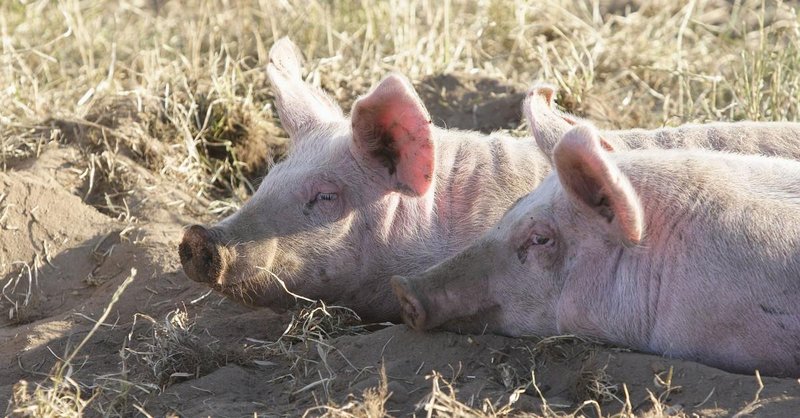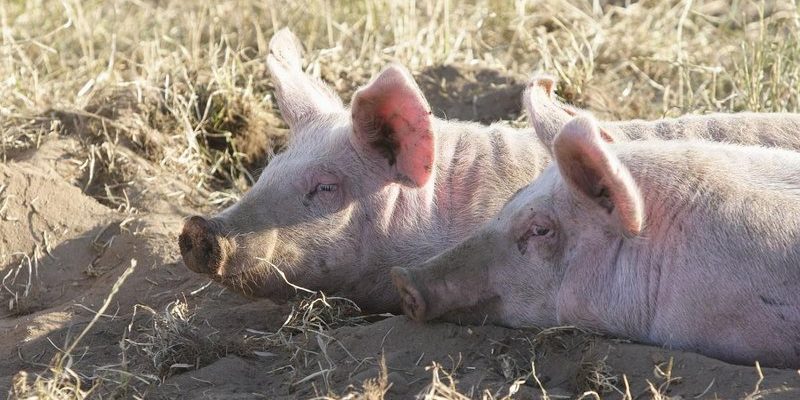
Imagine being in a room full of people and feeling completely alone. It’s a tough spot to be in, right? Well, pigs can experience something similar when they don’t have companions. They are highly intelligent and emotional creatures, often forming strong bonds with other pigs, animals, and even humans. If you’re considering bringing a pig into your life or just curious about their social behavior, understanding their need for companions is crucial.
Are Pigs Naturally Social Animals?
Pigs are often regarded as some of the most social creatures in the animal kingdom. They communicate through a variety of vocalizations and body language, showing that they thrive on interaction. You might find them snorting, grunting, or even wagging their tails when they’re happy or excited to see their companions.
In the wild, pigs often form groups called sounders, consisting of females and their piglets. These social structures help them forage, protect one another, and nurture offspring. You might be curious about how this translates to domestic pigs. Well, pet pigs still retain these social instincts, meaning they will benefit immensely from having another pig or even a different animal around to bond with.
Additionally, studies have shown that pigs kept alone can develop signs of stress and depression. Imagine a pig without playmates: they might start to display destructive behaviors, like rooting around furniture or getting overly vocal. This behavior highlights just how important companionship is for a pig’s mental health.
How Many Companions Do Pigs Need?
So, you might be wondering: how many companions does a pig really need? While pigs can bond with many animals, it’s typically recommended to keep at least two pigs together. This allows them to engage in natural behaviors like play, grooming, and foraging together.
However, the ideal number really depends on the living situation and the pigs themselves. Some pigs may get along splendidly in pairs, while others might enjoy being part of a larger group. If you opt for a single pig, be prepared to spend a lot of time with them to fill that social void. Pigs can become quite attached to their human caregivers, but it’s not a perfect substitute for the social interactions they would get from fellow pigs.
It’s also good to note that introducing a new pig into the mix requires some caution. A slow introduction process helps both pigs adjust to one another without stress. Think of it like getting to know a new friend; you wouldn’t want to just dive into a deep conversation right away, right?
The Impact of Loneliness on Pigs
Loneliness can have severe consequences for pigs. When they don’t have companions, they can become anxious, bored, and even depressed. Imagine being cooped up in the house all day without anyone to talk to or play with—it would get pretty dull, wouldn’t it?
In the case of pigs, loneliness may manifest in various ways, such as:
- Destructive Behavior: Bored pigs may start uprooting furniture, digging holes, or creating mischief to relieve their boredom.
- Vocalization: Alone pigs may become excessively vocal, calling out for attention or companionship.
- Health Issues: Chronic stress from loneliness can lead to health problems, like weakened immune systems or weight loss.
If you start to notice any of these signs, it’s essential to address your pig’s social needs promptly. Sometimes a simple playdate with another pig can significantly improve their mood.
What If You Can’t Get Another Pig?
If you’re set on having a single pig, there are still ways to make sure they don’t feel isolated. Here are a few alternatives:
1. Spend Quality Time: Make it a habit to dedicate time each day for activities and play with your pig. They’ll appreciate the attention and companionship.
2. Other Animals: Some pigs can form bonds with other animals, like dogs or cats. Always supervise their interactions to ensure everyone gets along.
3. Interactive Toys: Providing toys that encourage mental stimulation can help keep your pig entertained. Think of puzzle feeders or toys that dispel treats.
While none of these options can completely replace another pig, they can help your pig feel less lonely and more engaged.
Identifying the Right Companion
If you decide that getting another pig is the best option, you need to think about the characteristics of a potential companion. Not all pigs will get along, so compatibility is key. Here are a few factors to consider:
1. Age and Size: Pigs of similar ages and sizes are more likely to bond. A young pig might energize an older one, but an enormous ruckus can also be intimidating.
2. Temperament: Some pigs are more outgoing, while others may be shy. Finding a companion with a compatible personality helps ease any transition.
3. Health Considerations: Always ensure that any new pig is healthy and free from diseases before introducing them to your existing pig.
Taking the time to choose the right companion makes all the difference in ensuring that both pigs thrive and enjoy their time together.
Final Thoughts on Pigs and Companionship
In closing, pigs absolutely need companions to live happy, fulfilling lives. Whether it’s another pig or a different animal, having a buddy helps them express their social nature and keeps loneliness at bay. Remember, a pig’s well-being is closely tied to its social interactions, just like ours is.
So, if you’re considering bringing a pig into your home, think carefully about how you can provide them with the companionship they need. It will make a world of difference in their happiness—and your bond with them. When it comes down to it, a happy pig is a thriving pig!

